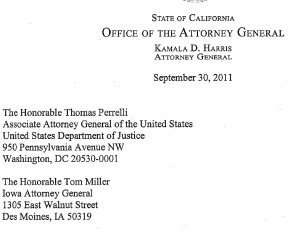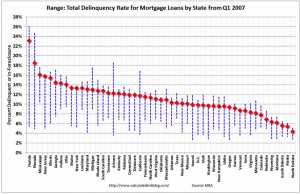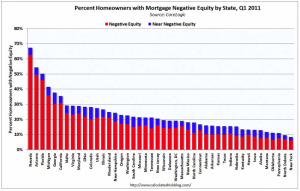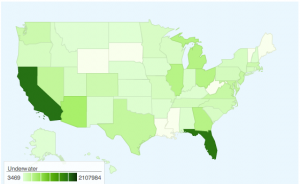What Do You Call a “Cornhusker Kickback” for California?
Remember the “Cornhusker Kickback“? That was the $45 million in expanded Medicaid funding Ben Nelson demanded from the Obama Administration before he’d support Health Insurance Reform. The special treatment for Nebraska gave the reform effort a tawdry feel.
And just as importantly, it did nothing to improve Nelson’s popularity in his own state. When he announced he would not run for reelection in December, reporters pointed to the Cornhusker Kickback as one issue that was making his reelection increasingly unlikely.
Nelson obtained a huge controversial provision in that legislation — derisively called the “Cornhusker Kickback” by GOP opponents — that called for the federal government to pay Nebraska’s costs for Medicaid expansion, potentially saving the state tens of millions of dollars annually. The provision was ultimately killed, but Nelson still paid a political price. Nelson adamantly denied that he traded his support for the Democratic health plan in exchange for the special provision, yet his standing back home took a big hit. Nelson proved to be the 60th and deciding vote for the Democratic health-care package.
Yet it seems like Obama’s trying something similar in his effort to get CA’s Kamala Harris to join in his foreclosure settlement, with $10 billion in aid slated for CA’s struggling homeowners.
Banks and government negotiators have cleared a big hurdle in efforts to resolve allegations of widespread mortgage-related misdeeds, agreeing on terms for a settlement that are being circulated to the 50 US states for approval, state officials and a bank representative say.
The proposed pact would potentially reduce mortgage balances and monthly payments by more than $25bn for distressed US homeowners, these five people said.
The tentative agreement still must be approved by all 50 state attorneys-general, and negotiators have previously missed proposed deadlines. Participants described the proposal terms as set, meaning the states will be asked either to agree to them or decline to participate.
The amount of potential aid is contingent on state participation and would decrease significantly if big states do not sign the agreement. New York and California are among several states that have voiced concerns about the terms of the proposed deal with Bank of America, JPMorgan Chase, Wells Fargo, Citigroup and Ally Financial. New York and California are particularly concerned with the part of the deal that would absolve the banks of civil liability for allegedly illegal mortgage-related conduct.
California borrowers would be eligible to receive more than $10bn in aid if the state were to agree to the terms, according to several people involved in the talks.
Don’t get me wrong. In this case, there’s good reason to give CA a disproportionate part of the settlement funds. Read more →






